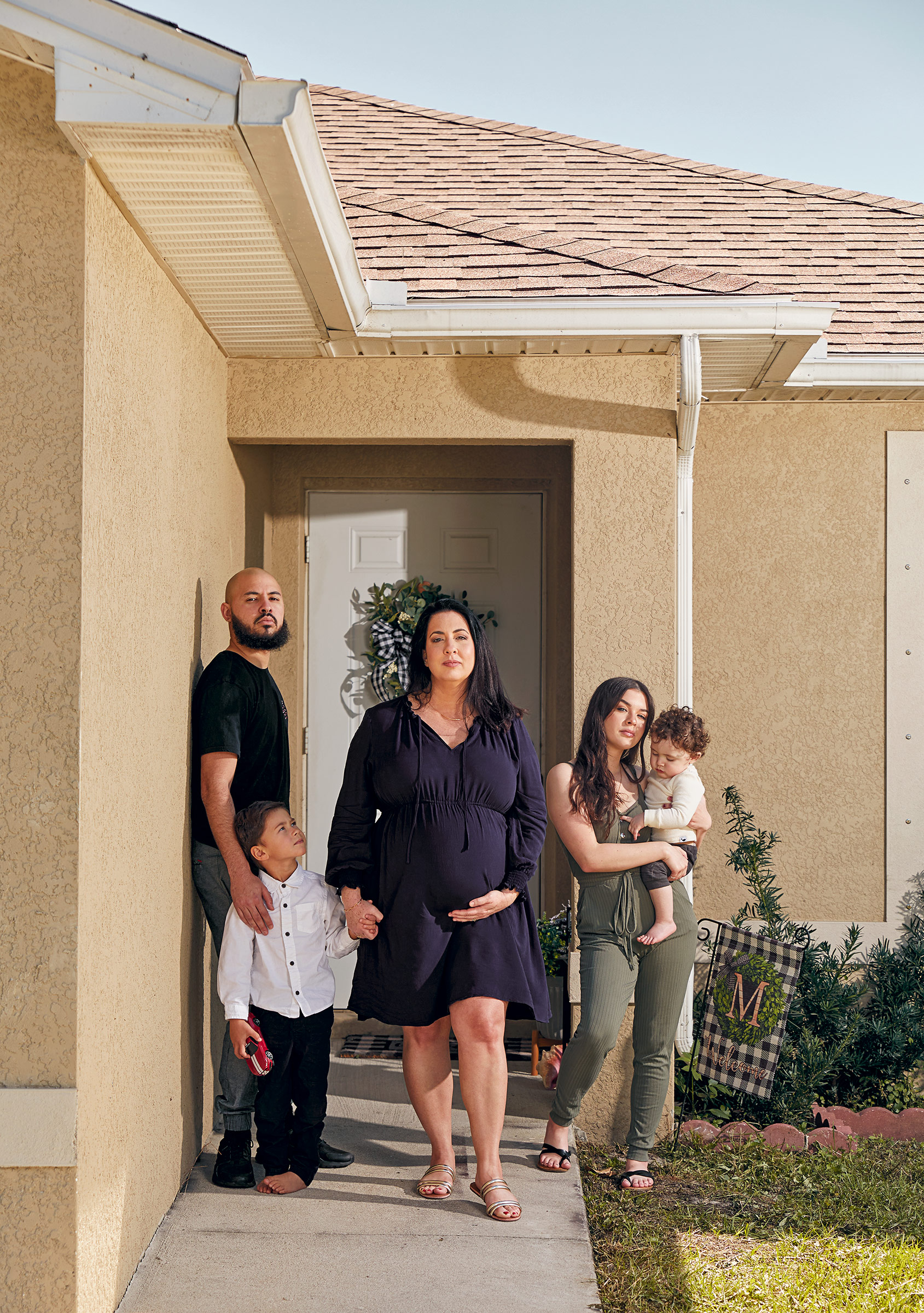
When Lauren Martinez arrived home after work to find her teenage daughter feverish and vomiting, she knew her pandemic plans were about to fall apart. It was May 2020 and her day care had closed, so Martinez, an assistant office manager at a dentist’s office in Florida, had been relying on the 14-year-old to care for her infant son between middle-school classes online. “It was not ideal,” she says. “But there was literally no option but her.” Martinez’s husband worked at the same office, and the family needed both incomes.
Martinez had returned to work from maternity leave about a month earlier, and she had hoped to drive home every day around noon to nurse her son. But by that particular day in May, she had pretty much given up on breastfeeding. She says she wasn’t provided private space to pump at work or the time to do so. “I was so engorged,” she says. “I would literally have to change my clothes every day because I would be leaking that whole time. I don’t think men understand that.” Still, she tried to get home when she could to offer at least a few minutes’ relief to her daughter.
But seeing her child sick and vulnerable that evening, Martinez knew this setup was unsustainable. “There’s something about when you’re a parent and your children get sick, they get more childish. She seemed like such a baby to me at that moment,” she says. “I was like, I can’t do this to her anymore.” Martinez texted her boss and asked to work remotely. Her request was denied. “I think he liked the Lauren before—no-responsibilities Lauren—better than this new mom who needed accommodations,” she says. “Now I was annoying or something.”
Within days, she was out of a job. “I didn’t know what law had been violated or if anything had been violated,” she says. “It just felt so wrong to me.” In July, she filed a lawsuit claiming that her former employer broke federal law in refusing to grant her leave and firing her. According to the complaint, when she asked to work from home, the company told her, “If you cannot come in due to childcare … the position is vacated. Meaning you no longer have a job here.” Then, the lawsuit states, when she complained to HR, she was ordered to return to work, but upon doing so, she was written up for poor attendance. After she objected, she was fired.
Read the full story here
More Must-Reads From TIME
- The 100 Most Influential People of 2024
- Coco Gauff Is Playing for Herself Now
- Scenes From Pro-Palestinian Encampments Across U.S. Universities
- 6 Compliments That Land Every Time
- If You're Dating Right Now , You're Brave: Column
- The AI That Could Heal a Divided Internet
- Fallout Is a Brilliant Model for the Future of Video Game Adaptations
- Want Weekly Recs on What to Watch, Read, and More? Sign Up for Worth Your Time
Contact us at letters@time.com